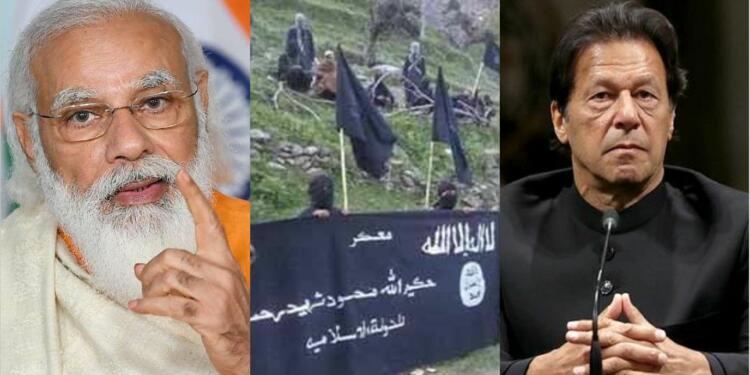India has made its intent of dealing with Pakistan alone clear to the Financial Action Task Force (FATF) – a Paris based financial watchdog that has kept the Islamist terror state on the edge for years now, by retaining Islamabad on the grey list. India has been pushing for Pakistan to be blacklisted by the FATF. However, despite having tremendous proof of Pakistan’s only flourishing industry – that of terror, the FATF has not had the spine to blacklist the Islamic Republic. On Friday, FATF once again retained Pakistan on the grey list.
The FATF came almost close to commending the terror state for taking “notable progress” in reducing money laundering and terror financing. The FATF is being duped by Pakistan to get out of the grey list. It is no secret that once out of the grey list, Pakistan will resort to once again exporting terror across the world – especially India. Even while it has been on the grey list, Pakistan’s terror operations have hardly taken a hit. As such, the sane decision would be to backlist the country.
Since that has not happened – and India was aware of the FATF’s non-commitment to deal with Pakistan in a manner that will break the terror industry’s back – New Delhi, even prior to the FATF plenary session last week, decided to take matters into its own hands.
According to a TOI report, sources in India’s counter-terrorism agencies have said that while Pakistan has hinted at repairing their forward posts and bunkers across the Line of Control (LC) following brigade-commander level flag meeting between India and Pakistan armies at Poonch’s Rawalkot, inputs on the identification of six terror launchpads opposite Jammu province have yet again put the doubts on rival nation’s intentions to curb terrorism.
Six launch pads have been identified alongside LoC between Akhnoor to Baramulla, the report added. “Bimbar, Sensa, Barali, Forward Kahuta, Halan Shumali and Keel are the terror launchpads in PoK which are under lens. The intent by Pakistan is missing,” said a senior counter-terror official. An undated photograph and video accessed by agencies show one Haji Aarif as launchpad commander at Barali in PoK.
What this means is that India is one step away from reducing these terror launchpads to rubble – as it did during the surgical strikes of 2016 and the Balakot airstrikes in 2019. Given the FATF’s inability to deal with Pakistan stringently, India is ready to protect itself from the constant threat posed to it by the Islamist terror industry.
“The FATF encourages Pakistan to continue to make progress to address as soon as possible the one remaining Combating the Financing of Terrorism-related item by demonstrating that Terror Financing investigations and prosecutions target senior leaders and commanders of UN-designated terrorist groups,” a FATF statement said.
Effectively, Pakistan has to cosmetically fulfil only one more action point – subsequent to which it will be removed from the grey list. If the FATF thinks that Pakistan’s terror industry will cease to exist after the same, it is in for a big surprise. Pakistan only has to show that it is fulfilling the FATF’s 27 action points given to it in 2018 since being on the grey list has cost Pakistan billions of dollars of GDP losses.
India understands that it needs to deal with Pakistan alone, and in a manner which the terror state comprehends. Economic losses surely hurt Pakistan, but its hatred for India supersedes all financial losses. So, Pakistan’s terror against India will continue, while it keeps getting pounded by India for punching way above its weight.
NHRC Steps In: Human Rights Commission Issues Notice to Malabar Gold Amid Pakistan Influencer Backlash
In a development that has ignited fresh debate over corporate responsibility, national pride, and freedom of expression, the National...

























India should delay 5 more years giving full statehood to the J and K and if one more attack happens on India from Pak side, India should declare a war and liberate POK from Pak.
India should seriously stop giving unnecessary importance to useless UN council and take decisions that will protect India security needs.